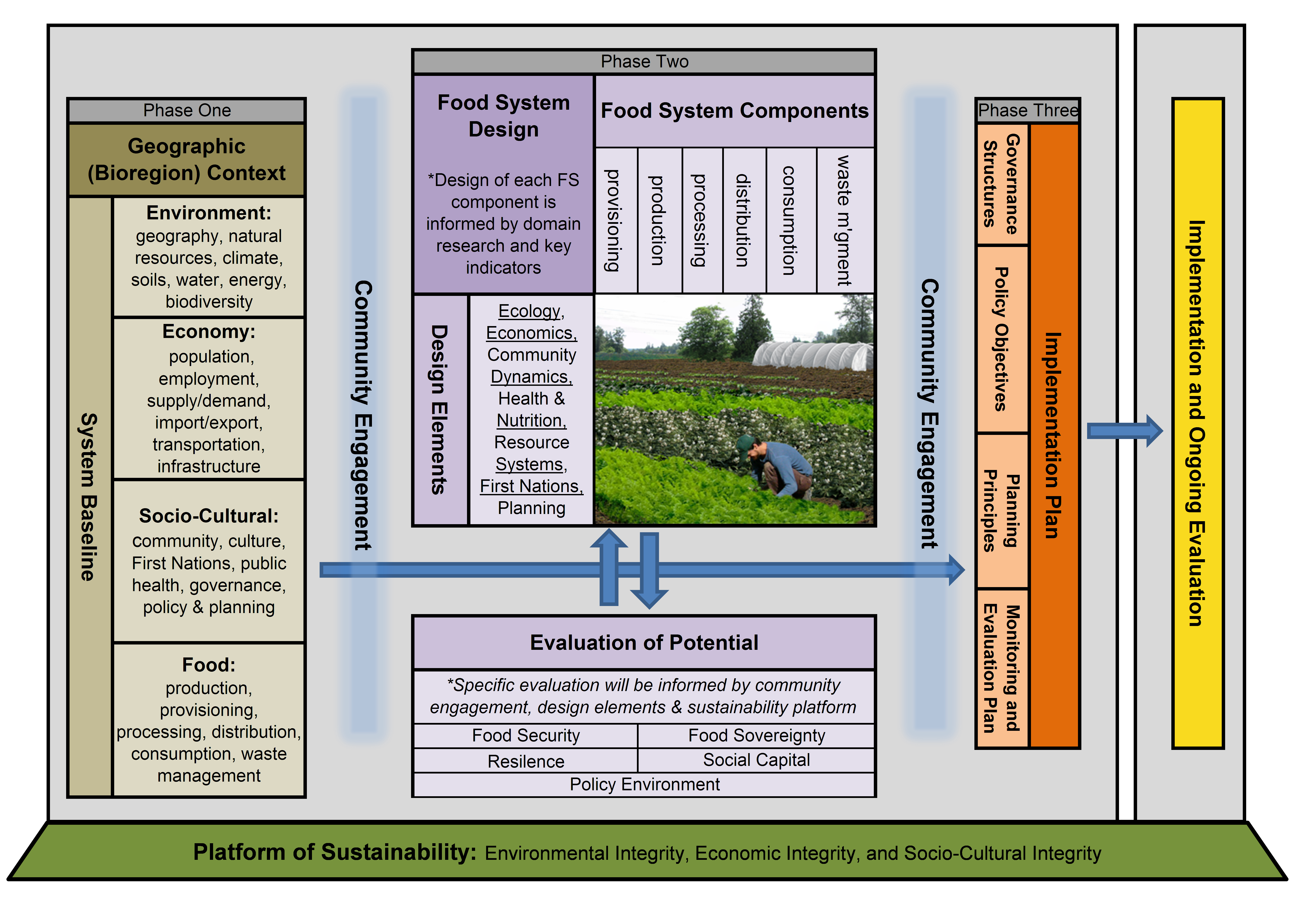Yukon agriculture accounts for less than 2% of Territorial food expenditures, and Yukon community, government, and agriculture sector leaders are increasingly concerned about the inherent vulnerability of their food system that this indicates. Collectively, Yukoners see great potential in working together toward creating a more substantial and economically viable Territorial Food System which will improve food self-reliance while creating jobs and enhancing the regional economy. Disparate efforts to this end have been made, but while these important pieces are informative, none in and of themselves constitute the comprehensive, integrated food system design and plan required to accomplish the afore mentioned objectives.
We are partnering with the Yukon Agricultural Association, and other Yukon-based investigators on an initiative to fully engage Yukon communities in the development of a realistic and practical Yukon Food System Design and Implementation Plan. This design and plan will constitute a vision and roadmap consisting of prioritized, sequential steps that can be taken by farmers, food-sector entrepreneurs (suppliers, processors, contractors, etc.), consumers, and community, Government, and First Nations leaders to create a Territorial Food System that reflects aspirations for increased sustainability and self-reliance.
Key objectives of the Yukon Food System Design and Planning Project include:
Support agriculture and food provisioning by:
-
Connecting agriculture with key elements of the food system (processing, distribution, sales);
-
Providing regionally appropriate information for current and future farmers;
-
Incorporating elements designed to attract and prepare new farmers;
-
Delineating climate change adaptation strategies for agriculture; and,
-
Identifying opportunities and strategies for expanding the regional food sector.
Strengthen the regional economy by:
-
Identifying ways to retain more of the “local food dollar” and position the agri-food sector to contribute directly to the regional economy;
-
Identifying opportunities for small to medium sized businesses; and,
-
Identifying the potential to create rewarding, satisfying jobs that will appeal to a new generation.
Promote environmental stewardship and health by:
-
Proposing strategies to mitigate environmental degradation and lessen overall ecological footprints associated with food and agriculture;
-
Proposing strategies to contribute to regional greenhouse gas emissions reductions;
-
Promoting energy efficiency within the food sector; and,
-
Identifying means to integrate ecologically sound agriculture with natural landscapes.
Foster food security and public health by:
-
Proposing strategies to make healthy, fresh, culturally appropriate foods more available; and,
-
Substantially reducing reliance on imported foods.
Strengthen communities and build social capital by:
-
Building capacity within SWBC communities to engage in agriculture and the food system; and,
-
Bringing together diverse communities by catalyzing action around mutual goals and shared food system values.
The Project Team
The research is being led by Dr. Kent Mullinix and Dr. Arthur Fallick. It includes investigators from the Institute for Sustainable Horticulture and Kwantlen Polytechnic University, the Arctic Institute for Community Based Research, the Yukon Research Centre at Yukon College, the University of British Columbia, the University of the Fraser Valley, Royal Roads University, Simon Fraser University, Ben-Gurion University, and Farm Credit Canada. Find out more about our research team here.
Project Funders and Partners
This project has been funded in part by the Canadian Agricultural Adaptation Program and the Yukon Agricultural Association. We are currently in the process of developing partnerships with local govermnents, First Nations Governments, the Yukon Government, and commnities of interest accross the Yukon. Updates on the status of these partnerships will be posted soon.
Project Methodology
This project is comprised of three phases which will be pursued over a three year period, summarized below and in the diagram below. Note that each phase of this project requires the active support and engagement of the regions’ stakeholders. We intend to cultivate effective working partnerships with community, industry, and government representatives across the region, and consider this critical to achieving project goals and ensuring that the research results are appropriate and useful. Find out more about our methodology here.
